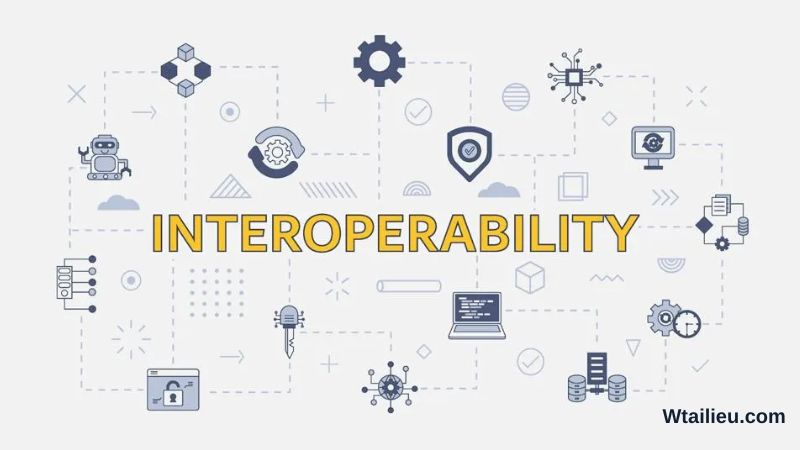
In today’s dynamic healthcare environment, effective management of pharmacy data is essential to ensure the delivery of safe and efficient patient care. From processing prescriptions to managing inventory and maintaining regulatory compliance, pharmacy data management serves as the backbone of modern pharmacy operations. This article by Wtailieu explores the key components of pharmacy data management and its critical role in optimizing pharmacy workflows and enhancing patient outcomes.
Pharmacy Data Management: An Overview
Pharmacy data management encompasses an extensive array of tasks and processes aimed at efficiently handling data associated with pharmaceuticals and pharmacy operations. This multifaceted discipline involves collecting, organizing, storing, retrieving, and analyzing data. Central to pharmacy data management is the utilization of electronic health records (EHR) systems, which serve as the backbone for streamlining patient care and optimizing medication management processes within pharmacy settings.
Electronic Health Records (EHR) Systems
EHR systems are the cornerstone of contemporary pharmacy practice, providing pharmacists with seamless access to extensive patient health records and detailed prescription histories. This accessibility empowers pharmacists to make well-informed decisions regarding medication therapy, thereby optimizing patient outcomes. Additionally, EHR systems facilitate efficient communication and collaboration among healthcare providers, fostering a holistic approach to patient care that prioritizes safety, efficacy, and continuity across the healthcare continuum.

Inventory Management
Effective inventory management is crucial for pharmacies to maintain adequate medication supplies while minimizing waste and avoiding expired products. Pharmacy data management systems facilitate real-time monitoring of inventory levels, automate reordering processes, and analyze usage patterns to optimize inventory stocking strategies. By streamlining inventory management processes, pharmacies can improve operational efficiency and reduce costs.
Prescription Processing
Pharmacy data management systems are integral to optimizing prescription processing workflows, encompassing tasks such as receiving electronic prescriptions, verifying patient information, and accurately dispensing medications. Through the automation of these processes, pharmacies can minimize errors and expedite prescription turnaround times, thereby elevating the quality of patient care and satisfaction. By harnessing the capabilities of advanced data management systems, pharmacies can effectively streamline operations, enhance efficiency, and uphold the highest standards of accuracy and reliability in medication dispensation.
Billing and Insurance Management
Billing and insurance management stand as pivotal pillars within pharmacy data management, guaranteeing prompt reimbursement for rendered services. Pharmacy data management systems play a crucial role in facilitating various tasks, including insurance coverage verification, claims processing, and co-payment management. By automating these administrative processes, pharmacies can streamline operations, reduce paperwork, and enhance financial performance. This comprehensive approach to billing and insurance management not only ensures efficient reimbursement but also fosters optimal utilization of resources, ultimately contributing to the overall success of the pharmacy.

Regulatory Compliance
Ensuring compliance with regulatory standards is imperative for pharmacies to uphold patient safety and confidentiality. Pharmacy data management systems are equipped with robust security features and compliance tools designed to assist pharmacies in adhering to stringent regulations like HIPAA and FDA guidelines. By implementing these measures, pharmacies can effectively safeguard patient information and mitigate the potential risks associated with non-compliance. This proactive approach not only reinforces patient trust but also reinforces the pharmacy’s commitment to maintaining the highest standards of ethical and regulatory compliance.
Reporting and Analytics
The analysis of pharmacy data yields invaluable insights into medication usage trends, patient demographics, and business performance metrics. Within pharmacy data management systems, robust reporting and analytics tools empower pharmacists to monitor key performance indicators, pinpoint areas ripe for improvement, and make informed, data-driven decisions aimed at optimizing patient care and enhancing pharmacy operations. By harnessing the power of data analytics, pharmacies can adapt their strategies, allocate resources effectively, and continuously refine their practices to better serve their patients and thrive in a competitive healthcare landscape.
Interoperability
Interoperability is essential for seamless communication and collaboration across healthcare systems. Pharmacy data management systems must integrate seamlessly with electronic medical records (EMRs), hospital information systems, and other healthcare platforms to ensure continuity of care. By facilitating interoperability, pharmacy data management systems enable pharmacists to access comprehensive patient information and coordinate care more effectively.

Patient Education and Communication
Patient education and communication stand as integral facets of modern pharmacy practice, fostering patient empowerment and engagement in healthcare decision-making. Pharmacy data management systems offer a suite of features designed to support these endeavors, including medication reminders, drug interaction alerts, and access to educational resources. By leveraging these tools, pharmacies can enhance medication adherence, promote informed decision-making, and ultimately improve patient outcomes. This proactive approach to patient engagement underscores the pharmacy’s commitment to providing comprehensive care and promoting the well-being of its clientele.
Conclusion
Pharmacy data management plays a central role in optimizing pharmacy operations and enhancing patient outcomes. From electronic health records to inventory management, prescription processing, billing, compliance, reporting, interoperability, and patient education, pharmacy data management encompasses a comprehensive suite of tools and processes aimed at ensuring the safe and efficient delivery of pharmaceutical care. By investing in robust pharmacy data management systems, pharmacies can streamline workflows, improve patient safety, and thrive in today’s evolving healthcare landscape.
Conclusion: So above is the Pharmacy Data Management: Ensuring Safe and Efficient Patient Care article. Hopefully with this article you can help you in life, always follow and read our good articles on the website: W Tài Liệu
Related Articles
-
Top 250 Data Center Companies in the World as of 2023October 17, 2023


